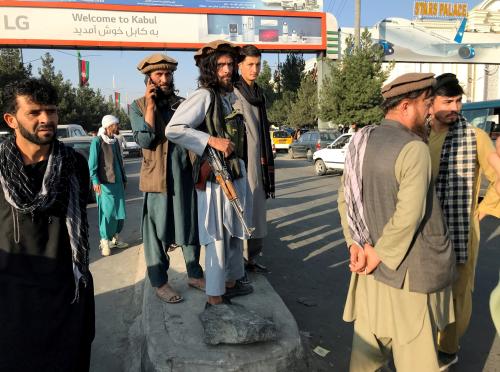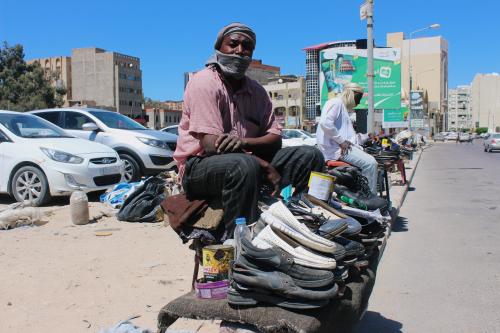At the invitation of the Government of Uganda, the Representative of the United Nations Secretary-General on Internally Displaced Persons, Dr. Francis M. Deng, undertook an official visit to the country from11 to 15 August 2003.
The purpose of the visit was to assess and reach a better understanding of the situation of internal displacement in Uganda, which now affects approximately one million persons throughout the country. An additional purpose was to hold consultations with the Government on the draft national policy on internal displacement. As always, Dr. Deng approached his visit in a spirit of openness and constructive dialogue with the Government and other interlocutors. He emphasizes that while protecting and assisting the internally displaced is first and foremost the responsibility of the Government, it is often necessary for the international community to complement the national efforts.
During his visit Dr. Deng had a number of meetings with Government officials, international donors, United Nations agencies and programmes, as well as non-governmental organisations (NGOs). He also undertook a visit to the districts of Kitgum and Gulu, where he met with a number of local officials, religious dignitaries, NGOs and representatives of the internally displaced. In Gulu he visited a camp for the internally displaced, where he witnessed their living conditions and also observed food distribution by the World Food Programme.
The displacement crisis in Uganda essentially falls into three situations. By far the largest displacement situation is in the northern districts of the country, mainly in Kitgum, Pader and Gulu, and is due to the armed conflict between the Ugandan People’s Defence Forces and the rebel Lord’s Resistance Army (LRA). In the East of the country, displacement has been caused by drought and cattle rustling by armed Karamojong tribal warriors. In the Rwenzori mountains, in the West of the country at the border with the Democratic Republic of the Congo (DRC), displacement was previously caused by attacks of the rebel Allied Democratic Front (ADF). However, this situation is now largely resolved.
With regard to the draft national policy, the Representative found it to be comprehensive and rich in substance. It addresses all phases of displacement, including prevention, protection and assistance during displacement as well as durable solutions. The Representative was impressed by the very broad and inclusive consultative process in drafting the policy, which included inputs from the United Nations, the international donor community, non-governmental organizations and the displaced themselves. The Representative was informed by the Government that the policy is expected to be adopted by Cabinet before the end of the year, and that the text itself will also be issued in a simplified version and translated into local languages.
In the North of the country, the Representative was struck by the level of devastation due to the conflict and the precarious security situation the internally displaced are facing. While efforts of the UPDF to protect the displaced are recognized and appreciated, the level of insecurity still remains high. In the camps, the displaced are struggling to survive and are in dire need of basic access to education, health, water and sanitation. The spread of HIV/AIDS also seems to be matter of serious concern in the camps. The World Food Programme, which is performing an admirable task in providing food relief to the displaced, is faced, along with its humanitarian partners, with insufficient resources and serious problems of accessing the camps due to the insecurity situation. The Representative was also saddened to witness the situation of the “night commuters”, especially children, who come to the urban centres at night to sleep in order to avoid abduction by the LRA.
The Representative expressed his determination to raise the awareness of the international community to the plight of the internally displaced in Uganda. This serious humanitarian crisis deserves the full support of the international community as a whole, both in terms of financial and operational support in order to provide the needed protection and assistance to the displaced and in the search for the peaceful resolution to the conflict.
The Representative encourages the Government to ensure that the national policy on internal displacement is adopted in the very near future, and that every effort is made towards its effective and efficient implementation. He urges the Government to redouble its efforts to ensure the physical protection of the internally displaced, and to provide appropriate levels of humanitarian assistance. He calls on international donors and the agencies of the United Nations to provide the Government with support in this endeavour.
The Representative recognizes that the conflict in the North is complex and intertwined. There is a need for a regional perspective, and possibly third party mediation to successfully address the problems and achieve a lasting peace.


Commentary
Representative of the UN Secretary-General on Internally Displaced Persons Statement on the visit to Uganda.
August 15, 2003